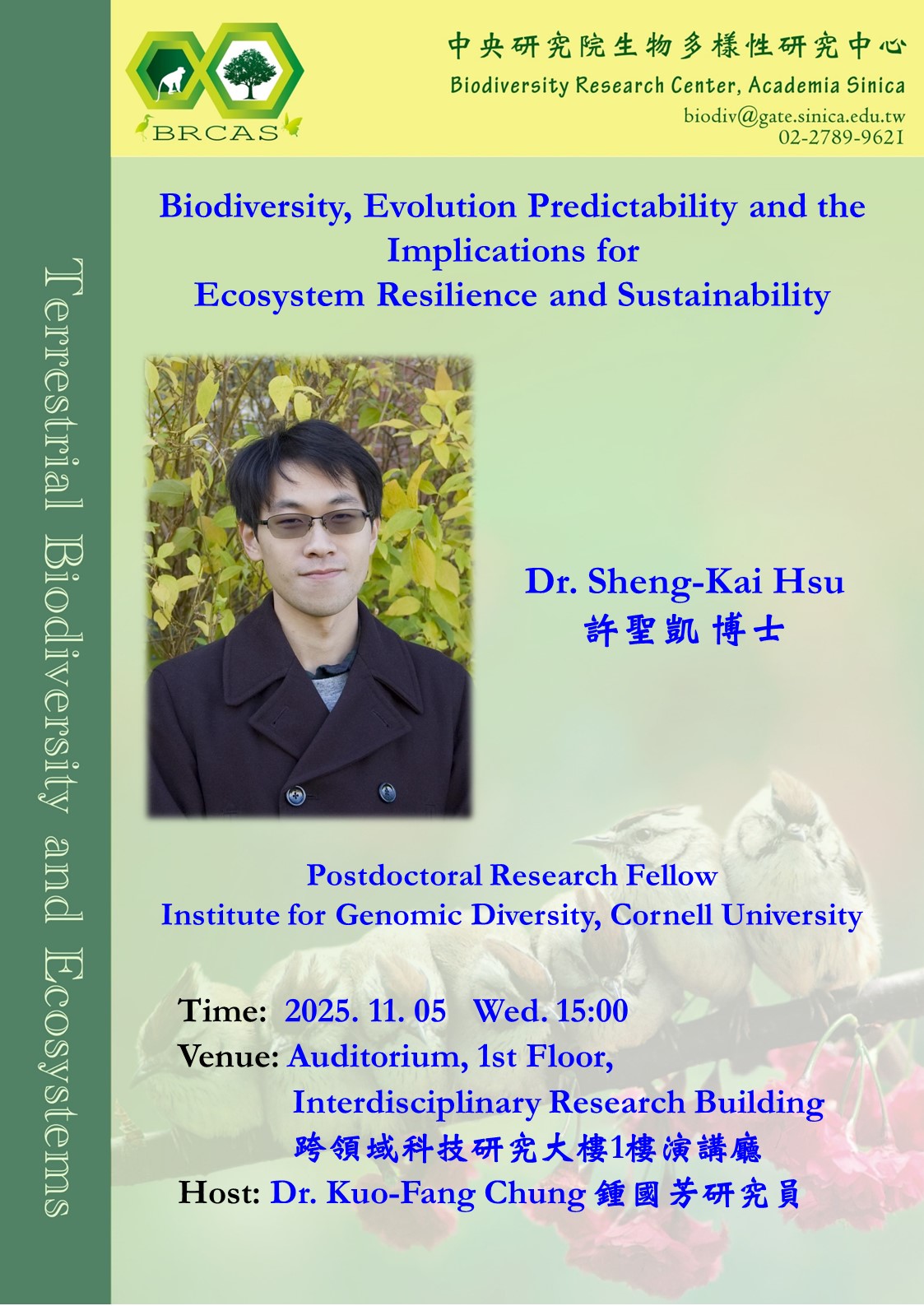- Lectures
- Biodiversity Research Center
- Location
Auditorium, 1st Floor, Interdisciplinary Research Building
- Speaker Name
Dr. Sheng-Kai Hsu (Cornell University)
- State
Definitive
- Url
Abstract
In the face of accelerating climate change and global population growth, resilience and sustainability have become central goals across scientific disciplines. For agricultural and ecological researchers, ensuring ecosystems can remain productive and self-sustaining under extreme environmental conditions is a critical mission. From an evolutionary perspective, the past evolution could offer valuable insights into the feasibility of trait innovations and their underlying genetic mechanisms. The central hypothesis behind this argument is that genetic convergence reveals the predictability of evolution across independent lineages. My research integrates experimental evolution and comparative genomics to understand this predictability. Through controlled evolution experiments, I demonstrated that the effective mutational target space is a key determinant of genetic convergence: evolution of traits achieved by limited mutational targets exhibit highly predictable genetic bases, whereas polygenic adaptation with large and redundant mutational target spaces show diverse genetic outcomes. Beyond controlled evolution experiments in model organisms, I have also pioneered the extraordinary biodiversity in nature that represents the consequences of repeated evolution of adaptive trait innovation. By analyzing phenotypic, genomic, and biogeographic data from over 500 grass species through AI-informed phylogenetic mixed models, I identify key genomic features, physiological pathways, and genes that drive variation in environmental adaptation and nutrient cycling. These analyses demonstrate that the same principles governing genetic convergence in controlled experiments also shape the evolution of ecological resilience in the wild. Understanding when and why evolution is predictable provides a roadmap for identifying which adaptive traits and genes can be reproducibly targeted for improvement. In this way, the study of evolutionary predictability becomes directly actionable—informing the design of climate-resilient, resource-efficient cereal crops and guiding sustainable ecosystem management. Looking ahead, I aim to extend this framework across other plant clades and ecosystems, advancing our ability to harness biodiversity for both evolutionary insight and practical application.









 Home
Home

